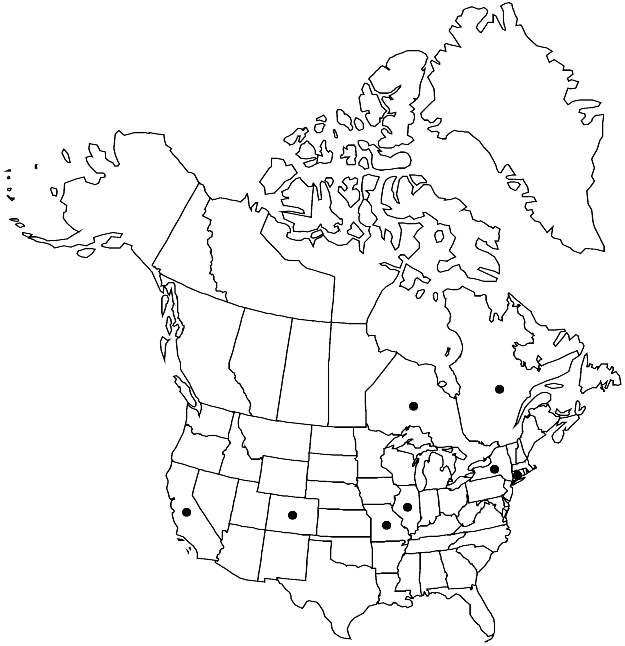Difference between revisions of "Gemmabryum klinggraeffii"
Phytologia 87: 67. 2005.
FNA>Volume Importer |
FNA>Volume Importer |
(No difference)
| |
Revision as of 19:44, 24 September 2019
Plants small, green to yellow-green. Stems 0.4–2(–3) cm; rhizoids pale tan to brown. Leaves loosely set, ovate-lanceolate, weakly concave, 0.4–1.5(–2) mm; base not decurrent; margins plane to weakly revolute proximally, serrulate distally, limbidium absent; apex acute to acuminate; costa short-excurrent, awn slender; alar cells similar to adjacent juxtacostal cells; proximal laminal cells gradually short-rectangular, (1–)2:1; medial and distal cells 40–60 × 10–14(–16) µm, 3–4:1. Specialized asexual reproduction by rhizoidal tubers, on long rhizoids in soil, red to crimson, irregularly spheric, 60–100(–120) µm, cells 20–30 µm, distinctly protuberant. Sexual condition dioicous. [Capsule inclined or nutant, 2–4 mm].
Habitat: Damp disturbed soil in fields, agricultural settings
Elevation: low to moderate elevations (0-800 m)
Distribution

Ont., Que., Calif., Colo., Conn., Ill., Mo., N.Y., s South America (Argentina), w Europe, Asia (China, India, Japan), Atlantic Islands (Iceland), Pacific Islands (New Zealand), Australia.
Discussion
Gemmabryum klinggraeffii is distinguished by the relatively small, spheric, red to crimson tubers with distinctly protuberant cells and pale rhizoids. This species is probably introduced in the flora area.
Selected References
None.